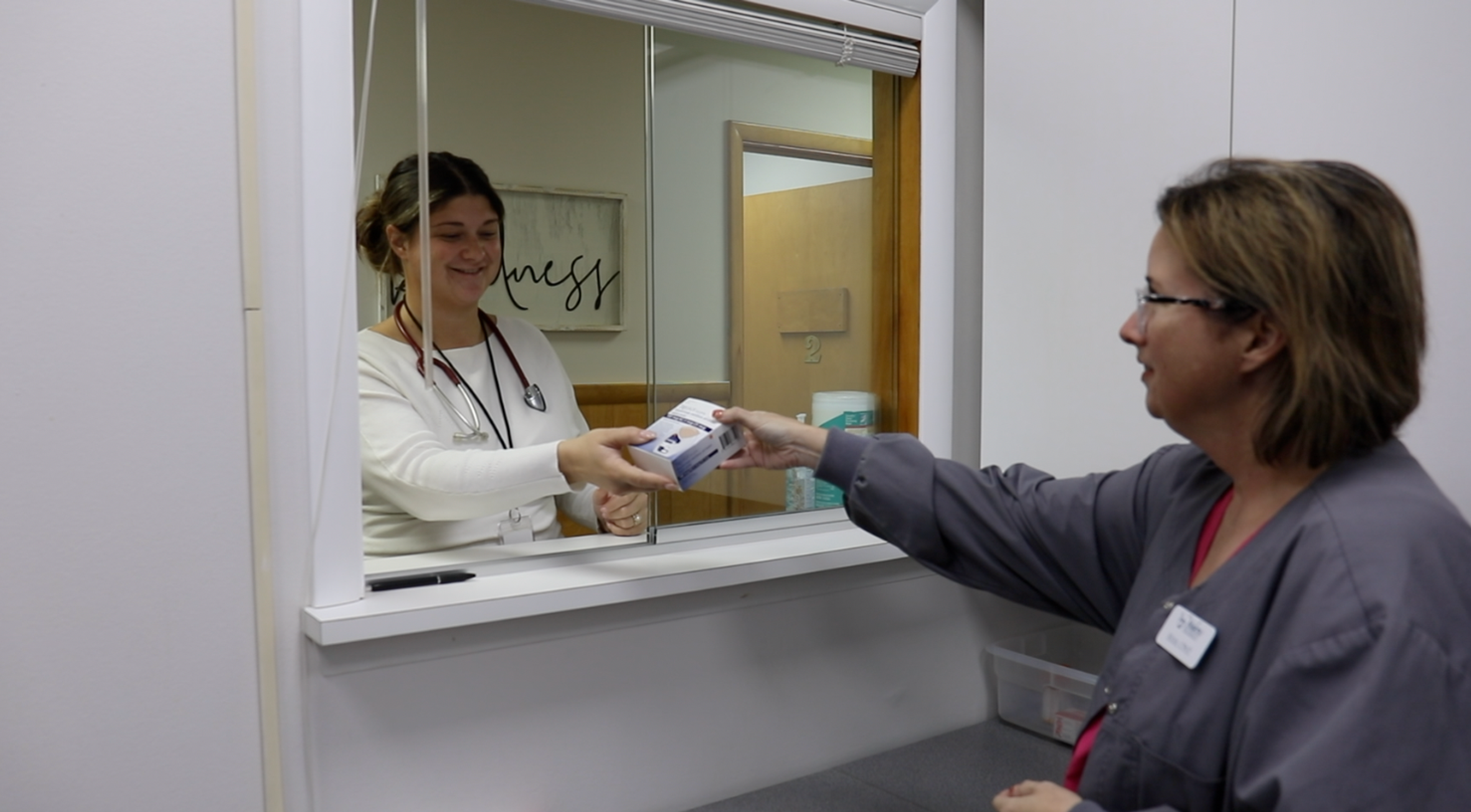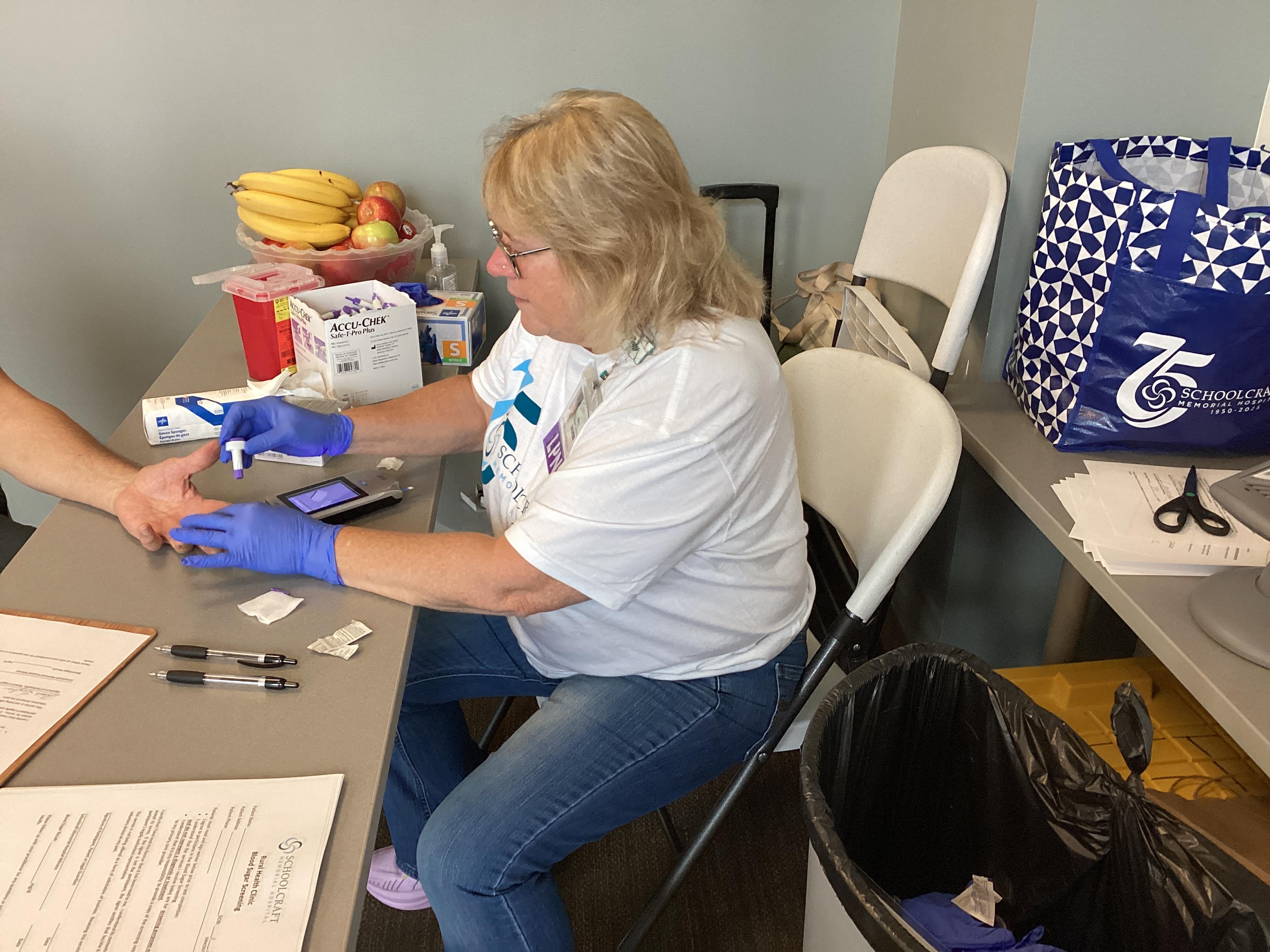Michigan Collaborative Recognized for Advancing Prostate Cancer Care
Julie Bitely
| 6 min read

After his doctor said the word “cancer”, Bill Crooks didn’t hear much else as he tried to absorb the devastating news. “Hearing the diagnosis … it feels like life is over,” the Grand Rapids Township man said. Diagnosed with prostate cancer in 1993, he opted for surgery to “get it out of my body.” The operation was successful and Crooks, who is now 82, has been cancer free for more than 20 years. Still, the surgery’s side effects of erectile dysfunction and incontinence haven’t been easy. But what if men like Crooks, who was diagnosed with a lower-risk form of prostate cancer, never had to to be treated surgically? Advancements in prostate cancer treatment have made it possible for some men to opt for active surveillance of the cancer, which allows them to avoid negative consequences that can dramatically decrease quality of life. “Looking back, I wish what’s available now was available to me then,” he said.
Collaborating Toward Better Treatment
Finding better ways to treat and manage prostate cancer is the mission of the Michigan Urological Surgery Improvement Collaborative, or MUSIC. This physician-led quality improvement program is comprised of 42 practices and 235 urologists, which accounts for approximately 85 percent of the urologists in the state. The MUSIC program is funded by Blue Cross Blue Shield of Michigan, and recently received a Best of Blue Award for Clinical Distinction from the Blue Cross Blue Shield Association. The group was selected from over 30 Blues plans across the country applying for the award. The University of Michigan Health System is the coordinating center for the collaborative and is led by Dr. David Miller, Dr. James Montie, Dr. Khurshid Ghani and project manager Susan Linsell. Miller said the collaborative effort has unleashed a culture of data sharing and implementation of best practices among participating physicians. With prostate cancer being one of the most common malignancies diagnosed in men, he said the variability in how the disease was being treated was striking when the group first started collecting data in 2012.
The ultimate goal of the group is to make Michigan the best place in the world to receive prostate cancer care. By collecting clinically credible data, comparing performance among peers, sharing best practices and implementing changes in clinical behavior, MUSIC is achieving more efficient utilization of health care resources, improving care delivery, and enhancing the quality, value, and outcomes of treatment provided to men in Michigan with prostate cancer. “There is a deep interest in continuous improvement and finding ways to improve care for their patients,” Miller said of the participating physicians.
Real Results
Since the collaborative formed, MUSIC has achieved a number of successes including:
- A statewide decrease in the use of both bone scans and CT scans for men with low-risk prostate cancer. This significantly reduces the amount of radiation men with low-risk cancers are exposed to, especially considering the tests are often unnecessary with a low-risk diagnosis.
- A 50 percent reduction in prostate biopsy-related hospitalizations, achieved by implementing a process change to address antibiotic-resistant bacteria. Dr. Miller explained that 1.3 percent of men – about one in 100 – undergoing biopsy prior to MUSIC ended up with infections that required hospitalization. The frequency of infections has been reduced to 0.6 percent as a direct result of the MUSIC collaborative.
- Implementation of an electronic infrastructure for measuring, and ultimately improving, functional outcomes after radical prostatectomy. By having patients fill out an electronic questionnaire before and after surgery, MUSIC has been able to assess in detail men’s functional performance pre- and post-op. This has helped the group devise strategies to decrease erectile dysfunction and incontinence, the two main side effects of the surgery.
The program’s results are generating national interest, with organizations in many states actively reaching out to MUSIC leadership to inquire about how to set up similar collaborative efforts. The group presented three abstracts at the 2014 North Central Section of the American Urological Association and had ten abstracts selected for posters and presentations at the 2015 meeting. Leaders offered a course at the most recent meeting, “Building a Statewide Quality Collaborative: Lessons from the MUSIC Experience.”
Patients Are an “Essential Moral Compass”
Miller and his peers hope the efforts of the collaborative lead to further improved treatment protocols and outcomes for patients. To ensure their voice is heard, MUSIC boasts four prostate cancer patients, as well as the wife of a patient, as active participants in the consortium. Crooks, the cancer survivor, is a member of the group. He also serves on Spectrum Health’s Patient Family Advisory Council and as a mentor to other men diagnosed with prostate cancer through his work with The Survivors, a cancer support group in West Michigan affiliated with Gilda’s Club. Crooks said having a voice with the MUSIC group has allowed him to impart a deeper understanding to the physicians involved about what it’s like to be a cancer patient. He wants the doctors involved in other men’s care to know that they are real, whole people who trust in the decisions made by the medical professionals caring for them. “I’ve spent 20 years being a mentor to men who have been diagnosed and are in the process of making a decision or living with the decisions that they have made and the treatments they have had,” Crooks said. “This gave me another venue to speak directly to the physicians and I think it is amazing how they value those of us who are patient advocates. They truly value what we have to say.” Crooks viewed his role as helping to validate what physicians likely already know or suspect about the patient and family experience, rather than helping to guide any clinical decisions. “I think it’s putting in front of the physicians that we rely heavily on them and their learned decisions,” he said. “I think treating those close to us with compassion and respect is also very important.” For Miller, having patients in the group keeps their needs front and center. “They really serve as sort of an essential moral compass for the work we’re doing in the consortium,” he said. The Michigan Urological Surgery Improvement Collaborative is one of the programs under Value Partnerships, a series of initiatives among physicians, hospitals and the Michigan Blues, aimed at improving quality and safety in medical care. If you enjoyed this post, you should also read:
Bill Crooks Photo Credit: Julie Bitely





